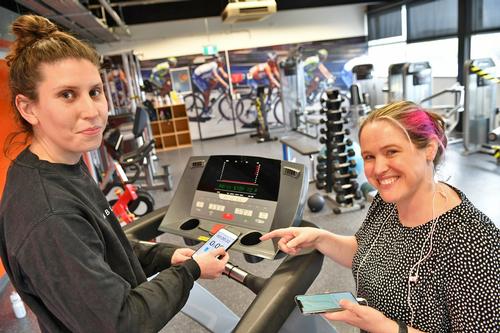see all jobs
Social connection and competitiveness boosts fitness app appeal

Fitness apps alone are unable to motivate most people to get active – but providing app users the opportunity to interact with an online exercise community has a huge impact.
A study by Flinders University in Adelaide, Australia, examined commercial physical activity apps and found that the social components of the apps hold "great potential" to increase physical activity engagement.
Sharing physical activity outcomes and progress to app communities and social networking platforms provides the necessary encouragement for people to engage more enthusiastically with their apps.
The study – Psychological mechanisms underlying the relationship between commercial physical activity app use and physical activity engagement – examined 1,300 adults (88 per cent female, aged between 18 and 83 years), over half of whom used a commercial physical activity app, including Fitbit, Garmin and Strava.
Findings include that the social components of physical activity apps are particularly beneficial in promoting engagement in physical activity due to their capacity to facilitate social support, and positively influence motivation and beliefs in one’s ability to perform physical activity.
Additionally, the use of app-specific communities and existing social networking platforms facilitated significantly greater engagement in physical activity.
“Sharing posts and receiving encouragement provides the social support many people need to stay motivated with exercise programs – and this doesn’t change across different age groups,” says study co-author Dr Ivanka Prichard, from Flinders University’s Caring Futures Institute.
Another key finding was that the more competitive a person is, the more benefit they get from popular workout apps.
“App users are motivated by both the enjoyment derived from physical activity and the personal value placed on the outcomes of physical activity, added Jasmine Petersen, another of the study authors.
"These combined motivations result in greater engagement in physical activity."
There was, however, also evidence that online interactions can have a negative effect on exercisers – if social networking is used to make direct comparisons.
“Engagement in comparisons was associated with lower self-efficacy and higher external regulation, and in turn, lower physical activity,” Prichard said, emphasising the importance of exercising for enjoyment and the benefits that exercise can provide to general health.
• To read the full study, click here for the Psychology of Sport and Exercise journal.
More News
- News by sector (all)
- All news
- Fitness
- Personal trainer
- Sport
- Spa
- Swimming
- Hospitality
- Entertainment & Gaming
- Commercial Leisure
- Property
- Architecture
- Design
- Tourism
- Travel
- Attractions
- Theme & Water Parks
- Arts & Culture
- Heritage & Museums
- Parks & Countryside
- Sales & Marketing
- Public Sector
- Training
- People
- Executive
- Apprenticeships
- Suppliers
















































